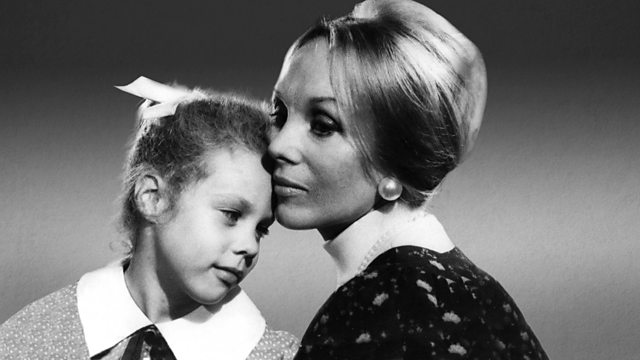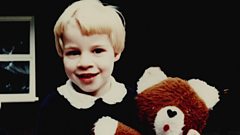
The Cult That Stole Children - Inside the Family
Investigation into an Australian cult which acquired numerous children it then isolated from the outside world and allegedly beat, starved and injected with LSD.
An incendiary, heartbreaking investigation into one of Australia's most notorious cults, and the scars its survivors still bear today.
Anne Hamilton-Byrne was beautiful, charismatic, delusional and damaged. She was also incredibly dangerous. Convinced she was a living god, Hamilton-Byrne headed an apocalyptic sect dubbed The Family, which was prominent in Melbourne through the 60s and 70s. With her husband Bill, she acquired numerous children - some through adoption scams, some born to cult members - and raised them as her own. Isolated from the outside world, the children were dressed in matching outfits, had identically dyed blonde hair, and were allegedly beaten, starved and injected with LSD. Taught that Hamilton-Byrne was both their mother and the messiah, the children were eventually rescued during a police raid in the mid 80s, but their trauma had only just begun.
Last on
More episodes
Clip
-
![]()
Growing up inside the sect
Duration: 01:51
Anna Grieve, producer of The Cult that Stole Children - Inside the Family answers the Storyville Q&A

Both
What made you first want to explore the subject?
My mother was a psychologist and I have always shared her interest in the human condition. I really wanted to work with a director on a big story that was not just about damage but also about resilience and survival. Making a film like this takes enormous persistence and I knew Rosie had a deep capacity to get to the heart of this story and would travel all paths of the production journey. I grew up in the same Melbourne street as Newhaven, the private psychiatric hospital controlled by the cult where LSD was administered. As a child, I had always wondered what went on in that mysterious gothic mansion. Now I know!
How long did it take to get the film off the ground?
It took four years for Rosie to research the story and gain the trust of people to agree to be in the film. It took us two years to finance the film and bring it to production.
What were you most surprised to learn in the course of production? Â
How a sociopath actually works to have such a deficit of empathy but such an intimate and acute understanding of the motivations of others.
What have been the differences in reception to the film in countries it has now travelled to?
Our film has just started its film festival journey but in its home town, it has shown itself to be a film that affects the audience on a deep and profound level prompting so much discussion.
Which documentary has most inspired you?
The whole gamut from The Thin Blue Line, Stories We Tell to Audrie and Daisy
Favourite Website/blog?
Lately I can’t get enough of non-fiction podcasts and just love This American Life, Serial, Radiolab and Someone Knows Something.
Person you’d most like to interview (living or dead?)
Anne Hamilton-Byrne without dementia.
Best piece of filmmaking advice you’ve ever been given? Â
Persistence is the highest form of valour.
Best piece of filmmaking equipment you can’t live without?
My brain and my unwavering curiosity in others.
If money was no object, what is your dream documentary subject?
Right now it’s a film about getting older and bolder and some amazing female characters who defy expectations and shatter stereotypes.
Favourite film of all time?
Rules of The Game
Most difficult access?
Between cult members, cult survivors and securing the police files, this film had the most difficult access.
Best recent read?
Geraldine Brooks - The Secret Chord
Rosie Jones, director of The Cult that Stole Children - Inside the Family answers the Storyville Q&A

Both are equally important and intimately entwined.
What made you first want to explore the subject?
I’m drawn to films about spirituality and belief, probably because I’m fascinated by how and why people take the leap of faith – something I couldn’t do myself. I first came across this story by accident, while I was interviewing a woman for an-other film. She told me that becoming part of The Family had destroyed relation-ships and shattered her life. I remembered the images I’d seen in the media of the dyed-blonde children and their guru ‘mother’, when they were removed from the cult in a police raid in 1987. It was an incredible story that opened up ques-tions around belief, identity, love and betrayal - I was amazed to find it hadn’t been told in full before.
How long did it take to get the film off the ground?
It was four years from the start of research to completion of the film. The sect’s motto is ‘unseen, unheard, unknown’, which meant they didn’t leave much of a trail for researchers. Many people were burnt by their experiences in The Family, so it took a long time to gain their trust. Financing was relatively fast once Anna, my producer, and I first pitched the idea, with Screen Australia, Film Victoria and MIFF’s Premiere Fund coming on board, followed by CBS News and Â鶹ԼÅÄ Sto-ryville. Production seemed to go by in a whirlwind.
What were you most surprised to learn in the course of production?
I was surprised to discover how far the tentacles of The Family reached into Australian society, from politicians and business leaders to medical professionals and academics. And I was inspired by the strength and resilience of the survivors.
What have been the differences in reception to the film in countries it has now travelled to?
The film is just starting its journey. We premiered in July at the Melbourne International Film Festival to sold-out screenings. We’ll screen theatrically in Australia in February and we’re currently entering international film festivals.
Which documentary has most inspired you?
I can’t single one out - there are so many! The first doco to really embed itself in my brain was Wiseman’s Welfare. I love lots of Errol Morris’s films, Darwin’s Nightmare, Paris is Burning, Stories We Tell… and the recent riveting true crime series, Making a Murderer.
Favourite Website/blog?
The Guardian blog and Huff Post.
Person you’d most like to interview (living or dead?)
Right now, Barack Obama.
Best piece of filmmaking advice you’ve ever been given?
To trust my gut instinct.
Best piece of filmmaking equipment you can’t live without?
Empathy… it’s not exactly ‘equipment’, but nothing works without it.
If money was no object, what is your dream documentary subject?
I would love to shadow Donald Trump as he takes on the Presidency. What a ride!
Favourite film of all time?
Again, it’s impossible to single one out but I’ve always loved Les Enfants du Paradis. A recent favourite is Lynne Ramsay’s confronting and visceral film, We Need to Talk About Kevin. Loved everything about it.
Most difficult access?
Accessing all the interviewees in The Family was very difficult. Nearly everyone we approached had been traumatised in some way, including past and present members, children raised in the group and the police who investigated them. We had to be extremely persistent to earn their trust and careful to maintain it.
Best recent read?
From Australia, Helen Garner’s This House of Grief is a moving and thought-provoking story about the quest for justice after a family tragedy.
Credits
| Role | Contributor |
|---|---|
| Producer | Anna Grieve |
| Director | Rosie Jones |
| Series Editor | Nick Fraser |
| Producer | Rosie Jones |
Broadcasts
- Tue 29 Nov 2016 21:00
- Wed 30 Nov 2016 02:00
- Thu 24 Sep 2020 23:35
- Sat 4 Sep 2021 22:30
Featured in...
![]()
Storyville
Amazing, shocking, inspiring and award-winning - the best in international documentaries.


